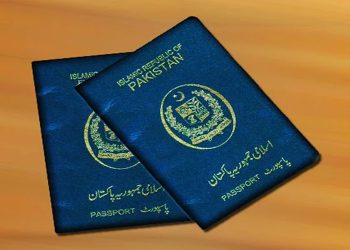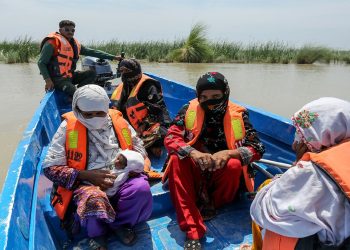The 26th annual St. Petersburg International Economic Forum (SPIEF) 2023 concluded on June 17 with low attendance, but high hopes. The United Arab Emirates (UAE) was the guest country of SPIEF this year. It was themed on “Sovereign development as the basis of a just world: joining forces for future generations.”
The SPIEF, often called the “Russian Davos,” this year was “the least impressive showing in the event’s 25-year history as The Moscow Times reported. Russia’s annual four-day economic showcase, which had once drawn crowds of foreign investors to President Vladimir Putin’s hometown, has been boycotted by Western countries and their close-friends for a second consecutive year due to the war in Ukraine. Same was the case last year when 140 delegates from 69 countries confirmed their participation in the SPIEF 2022, but much less turned up.
Most of this year’s attendees were from the Commonwealth of Independent States (CIS), African countries, Cuba and the UAE, with no representation from European countries or the United States. Even Russia’s closest “friends” China and India did not dare to attend the forum. What to say about the attendance of the poor and weaker state of Pakistan.
China had an obvious reason for not showing up at the forum as they were expecting the US Secretary of State Antony Blinken at home. Blinken’s visit to Beijing was scheduled during the Bali (Indonesia) G20 Summit in mid-November 2022 in a sideline meeting of the US-China presidents.
Blinken’s Beijing visit was initially scheduled in February 2023, but postponed due to the US “shooting of China’s spy balloon”. The incident hyped a controversy around the world. However, China said it was a “weather forecasting balloon” that swayed away from its actual position.
Blinken’s meeting with his Chinese counterpart Qin Gang took place in Beijing on June 18, just a day after the SPIEF. It was under the clouds of US recent allegations on China for its “spy center in Cuba”. Seems the Biden administration is intentionally keeping pressure on China, and successfully kept China away from Russia at an important moment of the SPIEF. It was the occasion when President Putin should have expected China’s solidarity with him to show off Russia’s lobby.
Contrarily, China preferred to take no risk of romancing with Russia at the moment of such a high-level visit that took place after almost five year since the Pompeo visit in 2018. China’s opting out of the SPIEF was strange despite knowing that the China-US rapprochement was expected to deliver no significant outcome. And, Blinken’s China visit remained just another icebreaker for both countries.
It is obvious that the two global rivals cannot compromise on their economic and strategic interests. However, China’s absence from the SPIEF would have its bitter taste. It may not last for long. Similarly, the Blinken visit, nevertheless, the absence of China and India, on which the Kremlin is staking its economic fortunes after its break with the West, will be eye-opening for Russia as to how long and to what extent the Kremlin can trust them or rely upon. Even Kazakhstan President Kassym-Jomart Tokayev refused to come at the last minute besides many of the Kremlin’s traditional partners. They just dropped out.
SPIEF and its guest list have always been a key matter for the Kremlin that has shrunk alarmingly. In past years, forum attendees have included the chancellor of Germany, the prime ministers of Italy, Japan and India, and the presidents of China. The forum has served as a platform for intensive discussions on the economic collaboration of Russia with the rest of the world, and modernization of Russia’s economy. Some blockbuster multinational business deals were signed at SPIEF, such as the Nord Stream gas pipeline, which was blown up last year.
A general opinion is that Russia’s “Special Military Operation” in Ukraine has pulled the foreign investors out of the SPIEF consecutively for two years. Certainly, a big blow to the Russian economy. Even the bigger blow was the result of US sanctions on Russia. The US and the West seized $370 billion assets of the Russian government, individuals and companies. Russia has lost most of its economic front since February 2022 despite the Kremlin efforts to justify its intervention in Ukraine. Unfortunately, Russia cannot stop the outflow of foreign capital and loss of business deals with the West.
President Putin repeated the “broken promises” in a meeting with the seven-member African peace mission on June 18. The Mission had to arrive at the inaugural ceremony of the SPIEF 2023 but was stuck in Poland for three days as Hungry did not allow them to use the airspace. While agreeing “to review any proposals from African states on the Ukrainian settlement”, Russian President Vladimir Putin showed the draft agreement that he signed with Ukraine preliminarily in March 2022 in Istanbul. However, after Russian forces were withdrawn, Ukraine disregarded the document, which included 18 articles and appendixes, and clauses on Ukraine’s neutrality and guarantees of Russia’s security.
The African Peace Mission has asked both sides to consider their and other proposals to end the war, and the conflict must be resolved through negotiations and through diplomacy. The war had a negative impact on the African continent and in addition to many other countries around the world. The continent is being affected economically: energy prices have risen, as have fertilizer and food prices, fuel prices have also risen, and these are the consequences of the ongoing war.
The mission has also urged both sides to de-escalate and begin with a fresh peace negotiation, recognizing the sovereignty of countries in the understanding of the UN Charter, guaranteeing security to all countries, opening of the Black Sea for free movement of grains especially to African countries, ensuring humanitarian support for the needy ones in the conflict areas, immediate release of war prisoners from both sides including return of the hostage children, and a comprehensive post-conflict reconstruction plan. The mission also proposed adopting certain processes that will lead to the end of this war. The group also expressed that their countries can play a certain role in the process.
The African peace delegation had discussed the peace initiative with Ukrainian President Vladimir Zelensky in Kiev before arriving in Moscow. Peaceful settlement between Russia and Ukraine is vital for food security in African countries. They were mainly dependent on the Ukrainian staple food that is disturbed since the war erupted. Even the UN-Turkey brokered Ukrainian grain deal could not serve the purpose. A very small portion of the grain could reach Africa.
Right or wrong, the narrative the US and his allies have built on the Ukraine war is very strong. They have proved to be strong enough to spend around $187 in Ukraine’s military support, and maneuver the global media for their objectives. NATO seems fatigued now, but will keep on spending for Russia’s ultimate isolation not bothering the high inflation, food and energy situation at their own homes. Perhaps, the African peace mission will fail as the Istanbul draft peace agreement could not be finalized, or the Grain Deal.
The writer is a freelance journalist and broadcaster, and Director Devcom-Pakistan. He can be reached at devcom.pakistan@gmail.com and tweet@EmmayeSyed






























